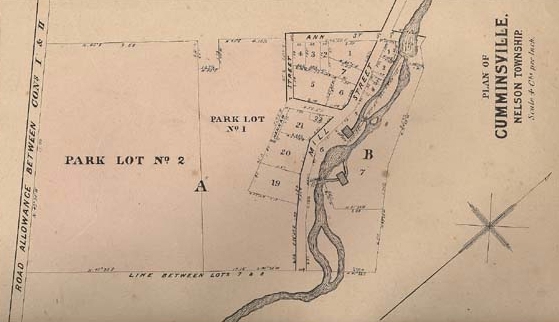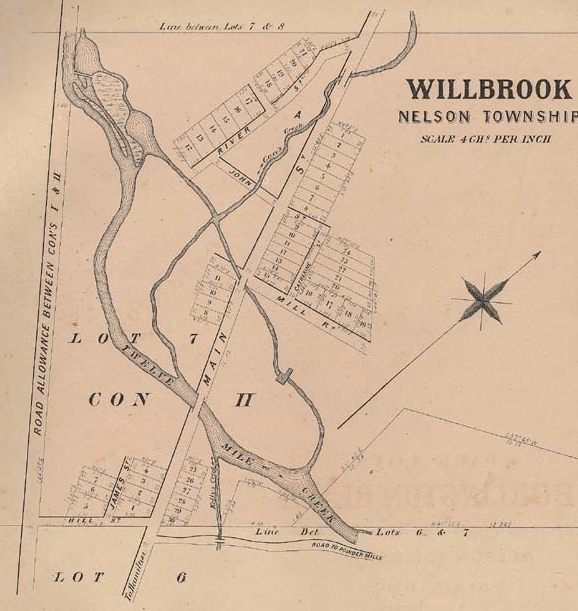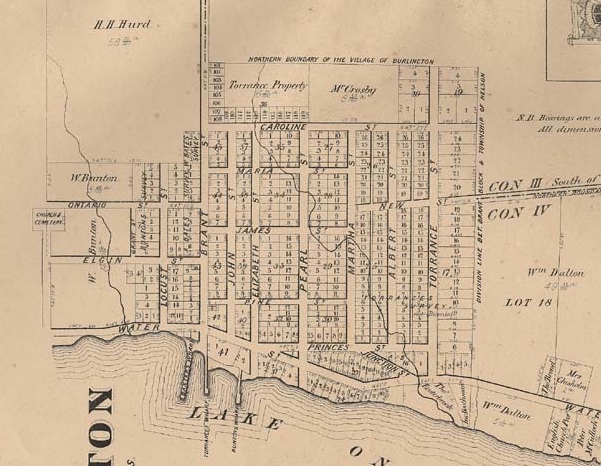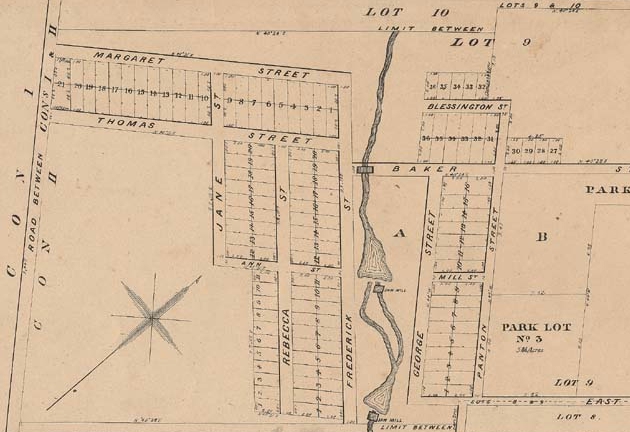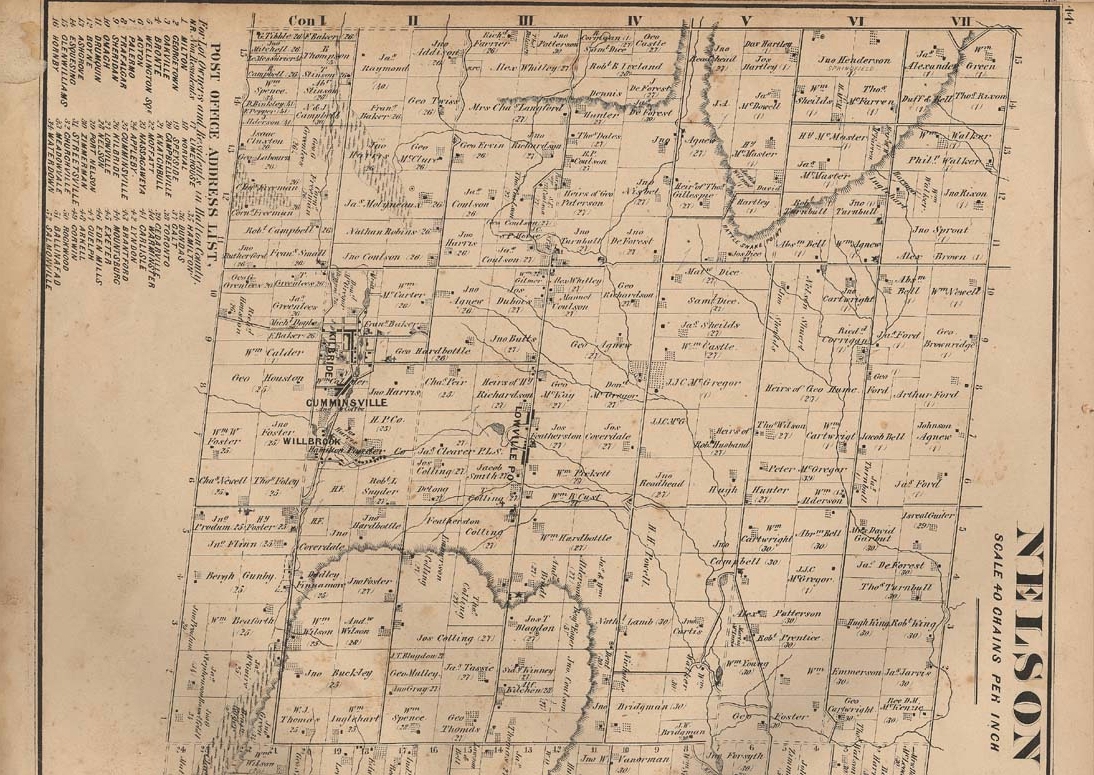.
Plans on this site are from the 'Illustrated Historical Atlas of the County of Halton' which was published by Walker & Miles of Toronto in 1877. Between 1874 and 1881, approximately forty county atlases were published in Canada. All of these atlases were sold by subscription. Prominent county residents paid an additional sum to have biographical sketches, portraits and views of their residences or businesses included in the atlases.
A township in Ontario is usually rectangular in shape, unless it borders a major river or lake. Townships are divided into concessions. Each concession is a strip of land 1 and 1/4 mile wide. Concessions can run in any direction and are usually separated by a road. Concessions are numbered with Roman Numerals (V, IV, etc.). When concessions do not run the length or width of the township because of water, they are usually labelled with letters (A, B, etc.). A gore is a part of a township that does not fit into the regular shape.
Concessions are divided into lots that use Arabic numbers (3, 4, etc.). Originally lots were 200 acres, which could then be easily divided into parcels of 100 acres. The lots ran parallel to the road.
|
